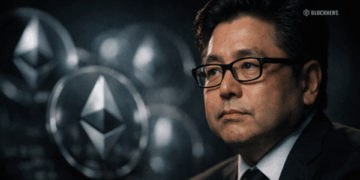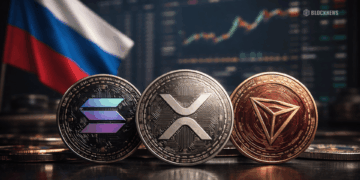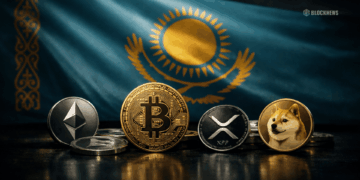- VaynerSports is embracing the integration of gaming, traditional sports, and NFTs.
- Darren Glover advocates for blockchain and NFTs as the next significant steps in fan engagement, a view shared by gaming giant Ubisoft despite some user backlash.
- The experiences of Ubisoft and Twitch provide valuable lessons for the industry, highlighting the need for considering user sentiment and receptivity.
The gaming industry is in a constant state of flux, and in recent times, it has been notably intertwined with the world of blockchain and non-fungible tokens (NFTs). While some entities like VaynerSports are embracing this shift, others like Twitch are grappling with its complexities. Darren Glover, VaynerSports’ executive vice president, elucidates how his company navigates these complexities and charts a path forward.
Navigating the NFT Landscape: The VaynerSports Perspective
VaynerSports recently signaled a strong move towards the gaming world by hiring Glover, a well-respected executive in the gaming industry, as their Vice President of Gaming and Esports. Glover’s enthusiastic stance on blockchain and NFTs, combined with the fact that VaynerSports’ roots are steeped in sports and talent management, signals a clear direction for the company: integrating traditional esports, gaming, and the world of NFTs.
Glover asserted that blockchain and NFTs are “the next step” in fan engagement, and he isn’t alone in this perspective. A significant player in the gaming industry, Ubisoft, has already stepped into this field, despite encountering backlash from its user base. Ubisoft launched its Tezos-based Quartz platform, becoming the first traditional gaming giant to introduce in-game NFTs, also known as Digits. This initiative brought about significant controversy among fans, but Ubisoft remains committed to its plans, indicating that they understand the sentiment towards the technology and are taking it into consideration.
Ubisoft’s recent alliance with Aleph.im to provide decentralized storage for its NFT assets further demonstrates its steadfastness in navigating the NFT space. Glover’s support for such a direction underscores his belief in a future where gaming and blockchain technologies are interwoven.
The Twitch Controversy: A Cautionary Tale
Yet, not all transitions into the digital landscape have been seamless. Twitch, the popular Amazon-owned streaming platform, recently felt the heat after attempting to implement changes to its advertising policies. Streamers heavily criticized the guidelines restricting overlaid ads, stating that it could severely impact their income generation. As a result, Twitch promptly reversed its decision, recognizing the policy as “bad for you and bad for Twitch.”
This event serves as a reminder of the fine line that organizations must walk when integrating novel technologies or attempting to implement changes within their platforms. While these technologies may offer new avenues for revenue and engagement, user receptiveness remains critical.
Setting the Course for the Future
Glover’s forward-looking perspective in navigating these turbulent waters could be the guiding light that many in the industry need. Drawing from his experience and understanding, he maintains that embracing technologies such as blockchain and NFTs could be instrumental in enhancing fan engagement and exploring new revenue streams in gaming and esports.
Taking into account the contrasting experiences of Ubisoft and Twitch, his focus on taking a gradual and thoughtful approach towards these new technologies stands out. As Glover aptly stated, “You have to crawl before you walk.”
In a fast-evolving industry, where technologies like blockchain and NFTs are upending traditional norms, this balanced approach may well be the key to successfully navigating the future of gaming and esports monetization. Time will tell if more industry players take a leaf out of VaynerSports’ book and forge a path that embraces innovation while maintaining a keen eye on user sentiment and receptivity.














